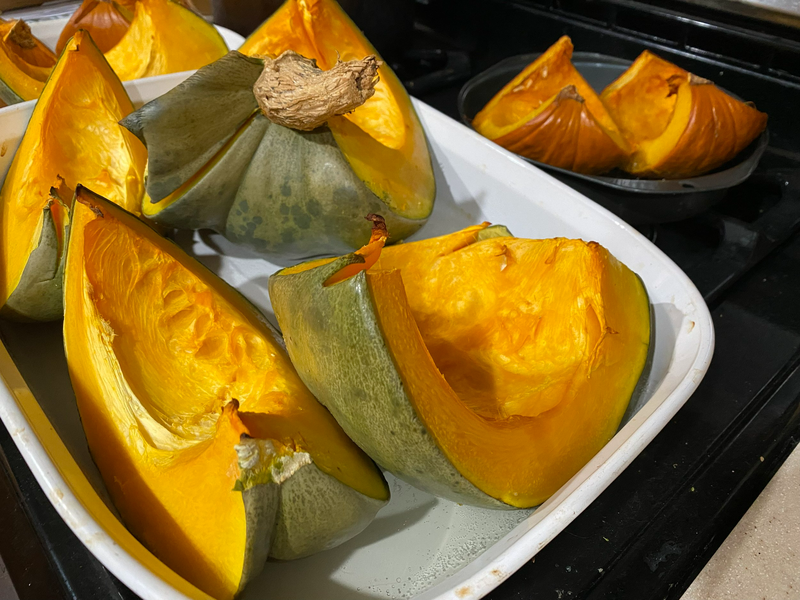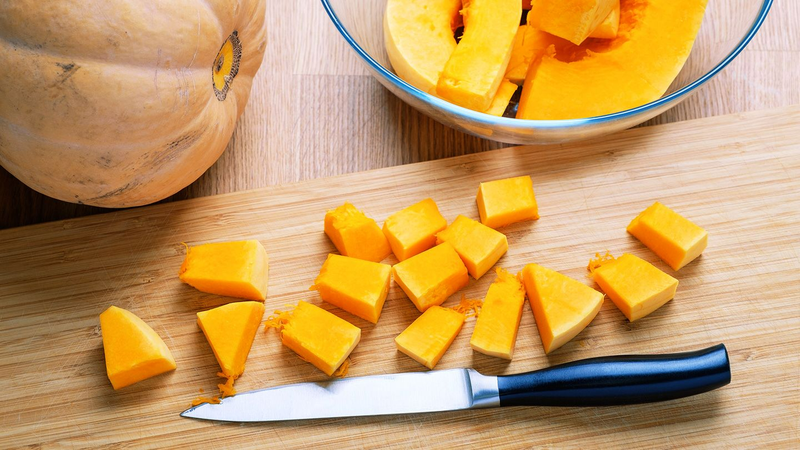Pumpkin is a fruit of the gourd family that is no longer too unfamiliar to many people. However, specifically, what nutrients does this fruit contain and what are the effects of pumpkin, not everyone knows clearly.
So, what nutrients are in pumpkin? What are the effects of pumpkin? If you do not know clearly, readers should not skip this article. Below will be some useful information related to pumpkin, answering the above questions for readers, please pay attention to follow.
Nutritional value in pumpkin
Just 254g of cooked pumpkin contains a very rich amount of nutrients. Specifically:
- 49 calories;
- 0.2 grams of fat;
- 2 grams of protein;
- 3 grams of fiber;
- 12 grams of carbs;
- 245% of vitamin A (reference daily intake – RDI);
- 19% of RDI of vitamin C;
- 11% RDI copper;
- 16% RDI potassium;
- 11% RDI manganese;
- 10% RDI vitamin E;
- 11% RDI vitamin B2;
- 8% RDI iron;
- Others: Phosphorus, zinc, folate, magnesium, and several B vitamins.
Not only is pumpkin rich in vitamins and minerals, it is also relatively low in calories. The reason is that most of the inside of this fruit is water (94%). In addition, pumpkin is also rich in beta-carotene, a carotenoid that the body uses to convert into vitamin A.
And unlike the seeds of many other fruits that are inedible, pumpkin seeds are edible, and they are even very nutritious, providing many other health benefits.

Pumpkin is a fruit that contains many nutrients that are good for health.
Health benefits of pumpkin
From the above abundant nutritional values, pumpkin will bring many health benefits such as:
Strengthen the immune system
The large amount of beta-carotene in pumpkin will correspond to the amount of vitamin A metabolized inside the body. Accordingly, vitamin A is a nutrient that can strengthen the immune system, fight infections and protect the intestinal mucosa, while supporting the body’s reproduction and development. A diet rich in vitamin A will reduce the risk of dangerous cancers.
In addition, pumpkin also contains a lot of vitamin C, thanks to vitamin C, the number of white blood cells in the body is increased, thereby helping immune cells to function more effectively, wounds heal faster. Some other substances contained in pumpkin such as iron, vitamin E, folate also support the immune system to function effectively.
Reduce the risk of disease
Pumpkin contains many antioxidants such as beta-carotene, beta-cryptoxanthin and alpha-carotene, … These substances will help neutralize free radicals and prevent them from damaging cells. Thanks to that, it is possible to minimize the risk of dangerous chronic diseases such as cardiovascular disease, cancer.
Protect eyesight
Vision can gradually decline with age, by providing the body with the necessary nutrients, you can reduce the risk of vision loss. Pumpkin contains many nutrients that can support vision such as vitamin A, beta-carotene to help reduce the risk of vision problems such as blindness, cataracts. Not only that, two other compounds, zeaxanthin and lutein, found in pumpkin also have the ability to prevent age-related macular degeneration and cataracts. Combined with vitamin C, E has a similar function as an antioxidant that helps fight free radicals that can damage the eyes, thereby optimally protecting the eyes.

Eating pumpkin regularly will help protect eyesight.
Weight loss support
Although pumpkin is a nutritious food, it is low in calories, making it a great addition to the diet for people who are losing weight. In fact, each cup of pumpkin contains only about 50 calories and up to 94% is water. When eating pumpkin, you can eat more than other carbohydrate foods such as potatoes and rice without worrying about consuming more calories than your body needs. In addition, pumpkin also contains a lot of fiber, effectively limiting appetite and preventing overweight and obesity.
Helps skin stay healthy and bright
Compounds such as vitamin A and beta-carotene found in pumpkin act as a natural sunscreen. After eating pumpkin, carotenoids are transported to various organs in the body, including your skin. Therefore, the skin is protected against the harmful effects of ultraviolet rays. In addition, vitamin C in pumpkin is essential for healthy skin. Thanks to vitamin C, the body can produce collagen to help keep the skin bright. Pumpkin also contains some substances such as vitamin E, lutein, zeaxanthin and many other antioxidants that have been scientifically proven to protect the skin against UV rays.
Who should not eat pumpkin?
Pumpkin is considered a safe fruit for almost everyone. However, there are still some people who may be allergic after eating pumpkin. In addition, for some other people, pumpkin is like a mild diuretic, which means that eating a lot of pumpkin will cause a reaction similar to when you take diuretics. The amount of water and salt your body excretes through urine will increase. This effect will not be good for the health of people who are taking lithium. Pumpkin can reduce the ability to eliminate lithium and cause some serious side effects. Besides, although pumpkin is a healthy food, if you use a lot of snacks made from pumpkin with added sugar, it will not bring good benefits.

Be cautious about eating pumpkin if you are taking lithium medications.
Above are the health benefits of pumpkin. Readers should take note and add pumpkin to their daily menu in reasonable doses to take better care of their health. If this is the first time eating pumpkin, readers should try it little by little. If the body shows unusual symptoms of suspected allergy, they should stop eating and consult a doctor before intending to continue using it.





